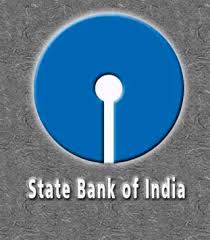Source:MOHIT SATYANAND:outlookindia:june 15,2011
State Bank of India’s quarterly numbers sent a chill down Dalal Street, with a huge, unexpected charge towards provisions for bad debts.
The stock dropped 8 per cent in one day; at the time of writing, it is being traded close to its 52-week low of Rs 2,138, and a massive 39 per cent off its high, late last year, of over Rs 3,500. If you have read even a few of these columns, you know how wary I have been of bank stocks; though I take no pleasure in seeing investors take losses, at least I have the satisfaction of having warned a few readers to take their profits while the going was good.
One of the reasons for the huge write-down in SBI’s numbers was the change of guard, as O.P. Bhatt handed over charge to the new chairman, Pratip Chaudhuri. For the new chairman, it makes sense to take the hit at the beginning of his tenure, so he can—rightly in my view—say that the loan losses were not his fault.
The larger issue, though, is that good times make for bad loans. From the banking perspective, good times are those when money is cheap. When inflation is running at 8 per cent, and banks can raise money from the RBI at 6 per cent, money is beyond cheap—banks are being paid to borrow money from the central banker. Times don’t get better than this, so expect a lot more bad loans to show up.
Pranab Mukherjee reinforced the learning from SBI barely a couple of days later, stating that there were probably a whole lot of bad loans in the books of PSU banks. I would hardly contradict him, especially as government-owned banks are known to come under a great deal of pressure to make loans to individuals, corporates, or sectors favoured by mandarins in the corridors of power. Naturally, this excludes Pranabda: he is concerned about the problem, so he could hardly be adding to it.
Later in the earnings season, DLF announced its numbers, which were also a lot worse than expected. Though turnover was up, inflationary pressures hit margins. In addition, the real estate giant struggled to finance its debt, with interest payments adding up to 67 per cent of profits. Prior-period adjustments allowed the company to provide a minuscule amount for income tax; nevertheless, earnings per share have dropped to just over Rs 2 for the quarter. Unless the company is able to do something drastic, the figure will drop further, and even the current two-year low price, just above Rs 210, will look extremely expensive. If the country’s biggest lender and biggest developer are both squirming under the weight of their balance sheets, the situation is likely to be even worse for smaller players in both sectors. And, if conditions worsen, financial distress among borrowers will force bankers to increase the provisions in their books.
Enter Players No. 3 and 4—the government and the Reserve Bank of India (RBI). The former is spending its way to what it hopes will be social justice and political success. The first objective will only lead to more leakages and corruption. The second, only the polls will tell. What I can see clearly is the need for more and more borrowing to finance a hugely deficit exchequer; bond yields are now at their highest in 2½ years. The RBI, meanwhile, is trying to distance itself from the government —which is as it should be—and is determined to fight inflation with the only significant tool at its disposal, namely monetary policy.
Higher interest rates are going to make life increasingly difficult for the debt-ridden. Put your money only where balance sheets are clean.





